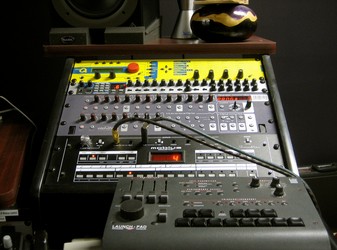Music Sampling: How to Legally Sample Music

Music sampling usually is associated with Hip Hop, Rap and R&B artists although any genre can do this. Sampling occurs when recording artist and songwriters use borrowed sections or clips of preexisting music recordings from other recordings in their new works.
If you decide you want to sample music from a song, make sure you do it the right way so you don’t end up in hot water like Robin Thicke and Pharrell Williams. They were ordered to pay $7.3 million ($4 million in copyright damage plus $1.8 million in profits for Thicke and $1.6 million in profits for Williams) for using the Marvin Gaye hit from 1977 “Got to Give It Up” without paying up for the usage rights.
This is how you legally sample music…
Get permission to use the composition (the song itself)
You’ll need to get a mechanical license. If you combine two or more songs into a single recording/song you’ll need special permission from each songs owner since you are making a derivative work. This would make the standard mechanical license insufficient in this case.
You can use the ASCAP ACE title search to find who the publishers are for each song you want to use and make sure you are prepared to offer them as much information as possible about the material you plan to use.
Get permission to use the recording
If you want to use someone elses recording in your new recording, that is a derivative work. This can be a difficult area because Artists and labels won’t want to diminish the value of the original recording. You’ll need to find out who administers/owns the master recording you want to sample, and you can start by contacting the record label for this information.
Create your own soundalike recording and sample your own recording instead of the original
It is not illegal to sound like someone else (think of tribute bands) so you can take this route if you’re unable to get permission to use the composition but not the recording
Find out how much it costs to legally sample a song
Costs will depend on who owns the composition and the recording you are sampling. So unlike typical mechanical licenses which cost 9.1 cents per copy for songs five minutes or less, you will have to negotiate sampling rates for each song you sample since there is currently no compulsory license for sampling and no statutory rate.
Whatever route you choose to take, just make sure you don’t sample illegally (you don’t want to be in the predicament Robin Thicke and Pharrel Williams are in). If you do, you can be taken to court, be required to pay profits and damages, have all copies taken off of the market, and be criminally prosecuted.
Stay on the safe side and get permission in writing, and don’t use the sample if your request is refused.



0 Comments